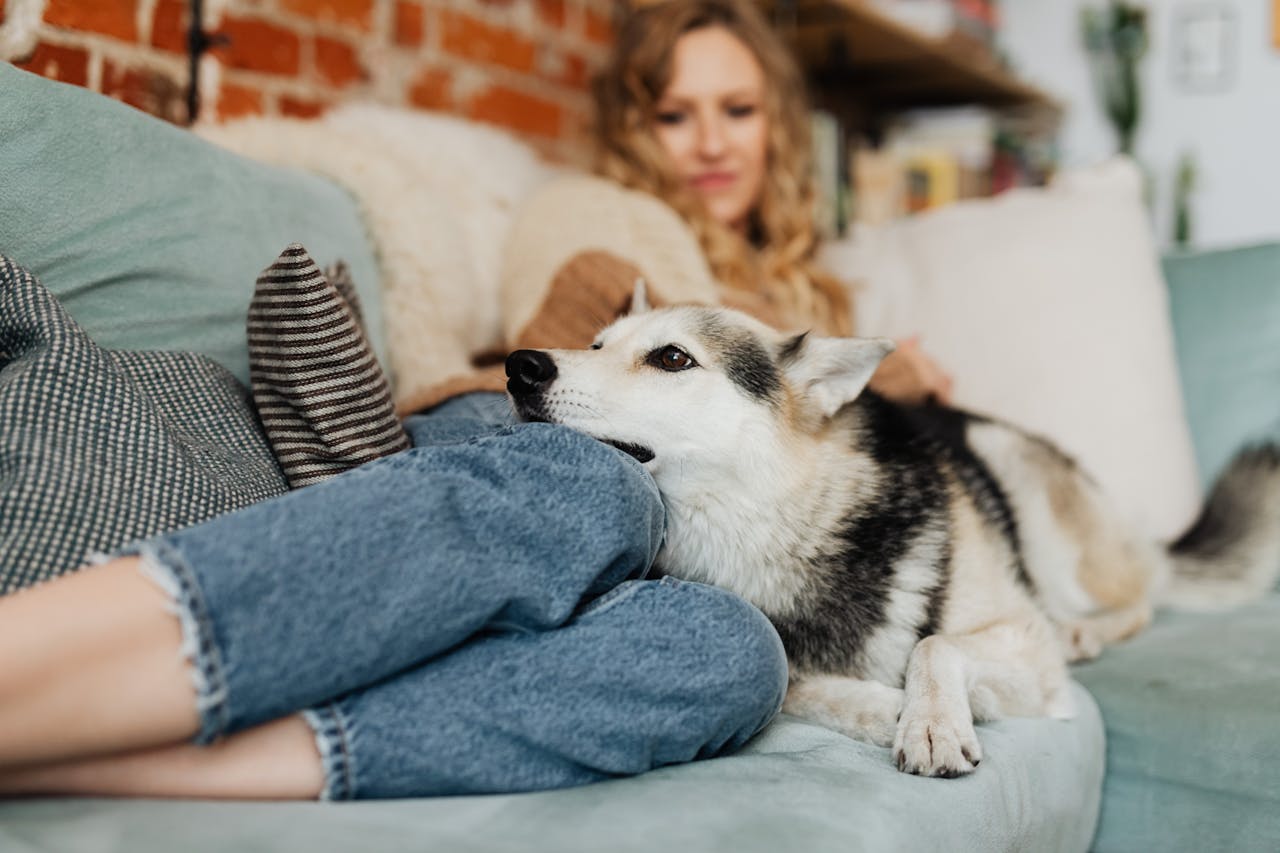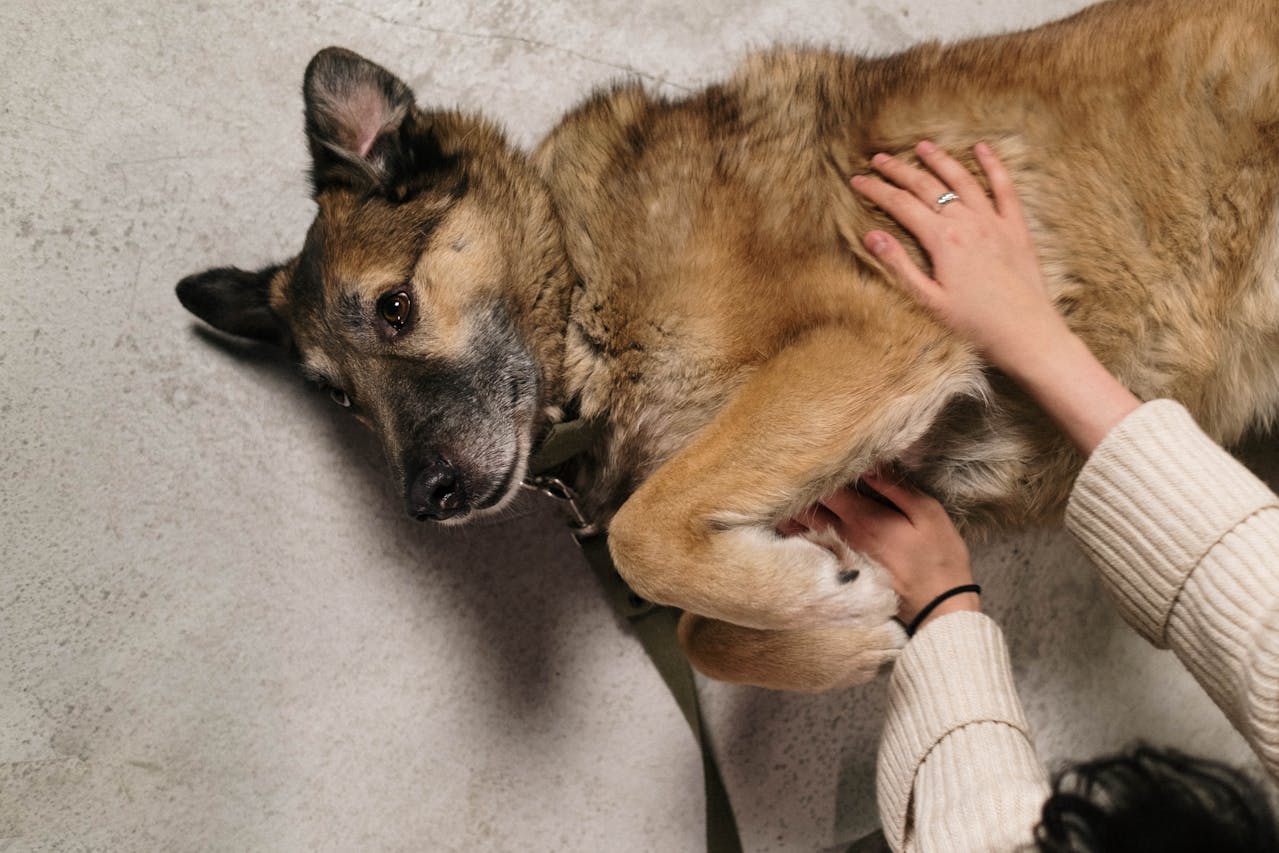Why Does My Dog Lie on Me?

While the occasional paw to the face may be less than ideal, this behavior is deeply rooted in a dog’s instinct and their bond with you.
Here are some of the most common reasons why dogs lie on their owners, and whether this close contact is something to encourage or gently redirect.
7 Common Reasons Dogs Lie on Their Owners
Dogs, regardless of size or breed, often seek close contact with their favorite people. This behavior can be both affectionate and instinctual. Below are seven common explanations:
1. A Sense of Protection
Dogs naturally look to their owners for safety and care. When your dog lies on you, they may feel secure knowing that you’re there to protect them—or they might even be trying to return the favor. In some cases, dogs will also lie on their owners when they sense emotional distress, offering comfort or seeking it in return.
2. Instinct from Pack Behavior
In the wild, dogs often slept close together as a form of social bonding and mutual protection. Domestic dogs have retained this pack mentality, and lying on or next to you mimics this comforting closeness.
3. Seeking Warmth and Physical Comfort
Even with modern climate control, dogs are still drawn to sources of warmth. Your body provides consistent heat, and many dogs enjoy cuddling for that reason alone. Some may even burrow under blankets or press closely against you for extra coziness.
4. Attention-Seeking Behavior
Dogs thrive on social interaction. If they feel they’re not getting enough attention, they may lie on you to get noticed. This behavior is often gentle—resting their head on your lap while you work, for example—but it’s their way of saying, “I’m here. Don’t forget me.”
5. Separation Intolerance
Some dogs exhibit mild forms of separation-related behavior, often referred to as “separation intolerance.” These dogs prefer to stay as close to their owners as possible and may lie on them to avoid being apart. While not as severe as separation anxiety, it can still benefit from gentle intervention, such as offering engaging toys or teaching independent settling.
6. Resource Guarding
In some cases, dogs may guard their favorite person the same way they might guard food or toys. If a dog lies on you and becomes defensive when others approach, this could indicate resource guarding. While it may seem flattering, this behavior can be problematic and should be addressed with guidance from a professional trainer.
7. Genuine Affection
Perhaps the most heartwarming reason of all—your dog simply loves you. Lying on you is their way of showing affection and strengthening the bond you share. This closeness triggers the release of oxytocin, the “love hormone,” in both dogs and humans, reinforcing your connection.
Should You Allow This Behavior?
In most cases, there is no harm in allowing your dog to lie on you—especially if there are no signs of aggression or resource guarding. Concerns that such closeness leads to separation anxiety are largely outdated. In fact, secure attachment may help prevent anxiety rather than cause it.
However, if sharing your bed or personal space is inconvenient, there are respectful ways to set boundaries.
How to Encourage Healthy Boundaries
If you prefer your dog not to lie on you or sleep in your bed, consider the following strategies:
-
Provide a designated sleeping area: A comfortable bed placed nearby can help your dog feel close without being on top of you.
-
Be consistent: Avoid sending mixed signals. If you allow your dog on the bed occasionally, it may confuse them. Set clear, consistent rules.
-
Reward independent behavior: Offer praise and treats when your dog chooses their own space, reinforcing the idea that independence is positive.
Frequently Asked Questions
Why does my dog lie on me all the time?
Because your dog feels safe and connected to you. This behavior stems from trust, affection, and a desire to be close.
Do dogs lie on their favorite person?
Often, yes. Dogs tend to gravitate toward the individuals they feel most bonded with, though they may have different “favorites” for different needs—one for playtime, another for feeding, and yet another for cuddling.
Conclusion
When your dog chooses to lie on you, it’s typically a sign of deep trust and affection. Whether it’s for comfort, warmth, or companionship, this behavior reflects the close relationship you’ve built together. As long as it isn’t accompanied by possessive or aggressive behavior, there’s no harm in allowing your dog to enjoy a snuggle—if you’re comfortable with it.
For those who prefer a bit more personal space, setting consistent and loving boundaries can help your dog feel secure while still respecting your comfort.
Get insurance plans with wide-ranging coverage options













